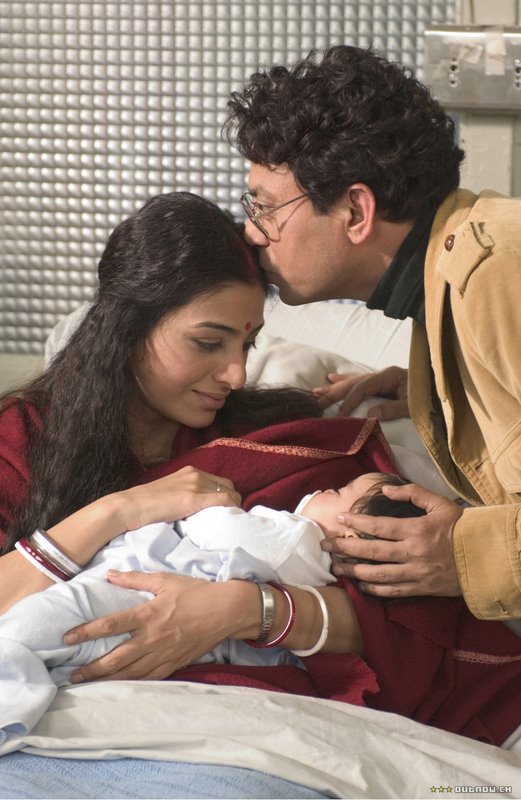The 1968 version of The Producers was a brilliantly funny commercial flop about an outrageously offensive and atrociously appealing play that became a hit. The screenplay won an Oscar for director/writer Mel Brooks. It was fall-out-of-your-chair-gasping hilarious and a cherished cult classic.
was a brilliantly funny commercial flop about an outrageously offensive and atrociously appealing play that became a hit. The screenplay won an Oscar for director/writer Mel Brooks. It was fall-out-of-your-chair-gasping hilarious and a cherished cult classic.
Then, in 2001, the little, low-budget film about crooked producers who think a sure-flop will make them rich became a Broadway musical that did make its producers rich. Very, very rich. The Broadway show became one of the most successful in history, with a record-breaking twelve Tony awards and a scheduled run that seems to extend into 22nd century.
So, of course they made it into a movie with the stars of the Broadway cast and a couple of movie stars added in for marquee value. From the Broadway show, we have Nathan Lane as king-of-the-flops producer Max Bialystock, who raises the money for his shows by wooing lonely widows, Matthew Broderick as timid accountant Leo Bloom, Gary Beach as wildly flamboyant director Roger De Bris, and Roger Bart as his sidekick/significant other Carmen Ghia. From television and movies, Will Ferrell as Franz Liebkind, the playwright of “Springtime for Hitler,” a merry musical romp that Max and Leo think is the answer to their prayers.
Leo tells Max that no one checks the books of a flop too carefully. So if they raise too much money for a play, selling more than 100 percent of the profits, they can keep all of the money — as long as they have a surefire flop. And what is a better recipe for theatrical disaster than a musical about the 20th century’s worst villain? Just to make sure, they bring on the worst director they can find and cast playwright Liebkind himself in the title role.
It’s all pleasantly flashy and fun, but it does not come close to the original. In the first place, the original movie didn’t know how funny it was, which is part of what made it funny. It was brash and audacious and irreverent. The new musical is none of those things. In making a movie of a success, it is too careful. It hits every joke square on the beat instead of striking a contrapuntal sidelong whack.
In the second place, the actors don’t have the same crazy genius. Nathan Lane’s performance is shtick-y. He doesn’t have Zero Mostel’s fearlessness. Matthew Broderick looks puffy and uncomfortable. He doesn’t do shlub very well and he doesn’t have Gene Wilder’s manic little trill. Thurman and Ferrell try hard but don’t add much.
In the third place, having the director of the Broadway show as director of the movie means that the movie is essentially a filmed version of the Broadway show with some scenes shot outdoors.
Most important, partly because of the cult status of the original and partly because of a general coarsening of society, it just isn’t that shocking any more. The flouncy, over the top gay characters aren’t very outrageous in a world where you can turn on the television and watch “Will and Grace” or “Queer Eye for the Straight Guy.” The original came out less than twenty-five years after World War II. Partly because of the success of that movie and partly because we’ve had a lot of other murderous tyrants, making fun of Hitler seems almost conventional. There was an episode of “Curb Your Enthusiasm” featuring Mel Brooks and his late wife, Anne Bancroft that included a twist on “The Producers” that was truly twisted and demented and shriekingly hilarious.
But this movie is not directed at the audience that wants something truly twisted and demented or shocking and outrageous. This is directed at people who are looking for something safe that makes them feel a little bit twisted and outrageous — sort of like the little old ladies who want to play “hold me, touch me” with Max. More like “Springtime for the Redhead on Desperate Housewives.”
Parents should know that this movie has some very crude humor and that it both makes fun of and revels in outrageous bad taste. There are sexual references and some stereotyping of gay characters that some people might consider homophobic. In the context of this intentionally offensive comedy, however, it is not intended to reflect bias. There are some strong (and vivid) sexual references for a PG-13, characters drink alcohol, and there is some comic violence. Oh, and the main characters are crooks who are stealing money from (wealthy) old ladies.
Families who see this movie should talk about why the original was not successful at the box office while the musical play is one of Broadway’s all-time champs. Is it because times have changed? If you were going to put on a sure-fire flop, what would it be? What were Max’s motives for doing the show? What were Leo’s? What will happen to them next?
Families who enjoy this movie will also enjoy the original version as well as other Brooks movies like Young Frankenstein
as well as other Brooks movies like Young Frankenstein (co-written by Gene Wilder) and Blazing Saddles
(co-written by Gene Wilder) and Blazing Saddles (all co-starring Wilder).
(all co-starring Wilder).
and Irfan Kahn and Tabu of The Namesake
, Paul Schneider for Lars and the Real Girl
(and he was just as good in “The Assassination of Jesse James by the Coward Robert Ford”), and Michelle Pfeiffer in Stardust
.

